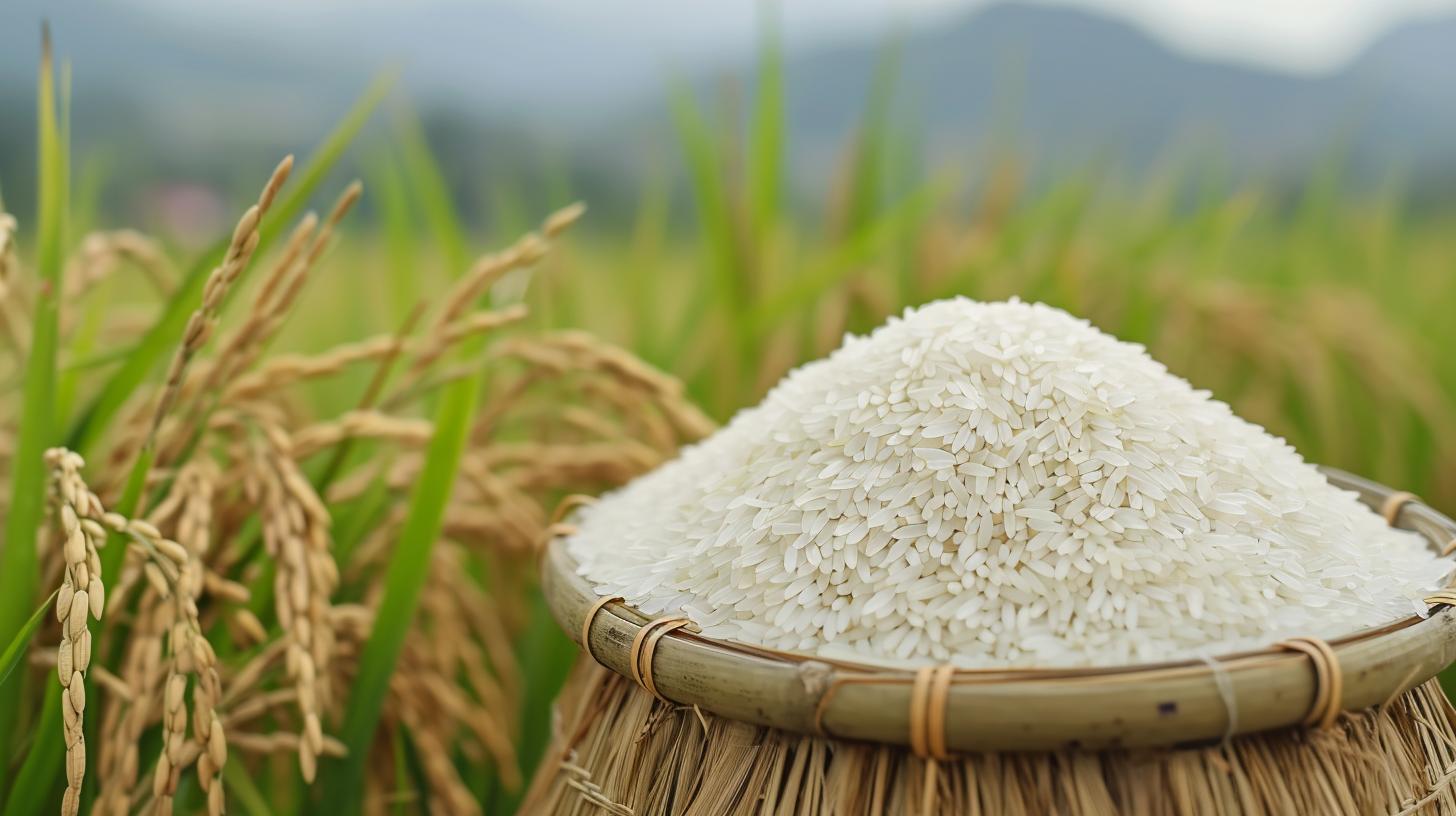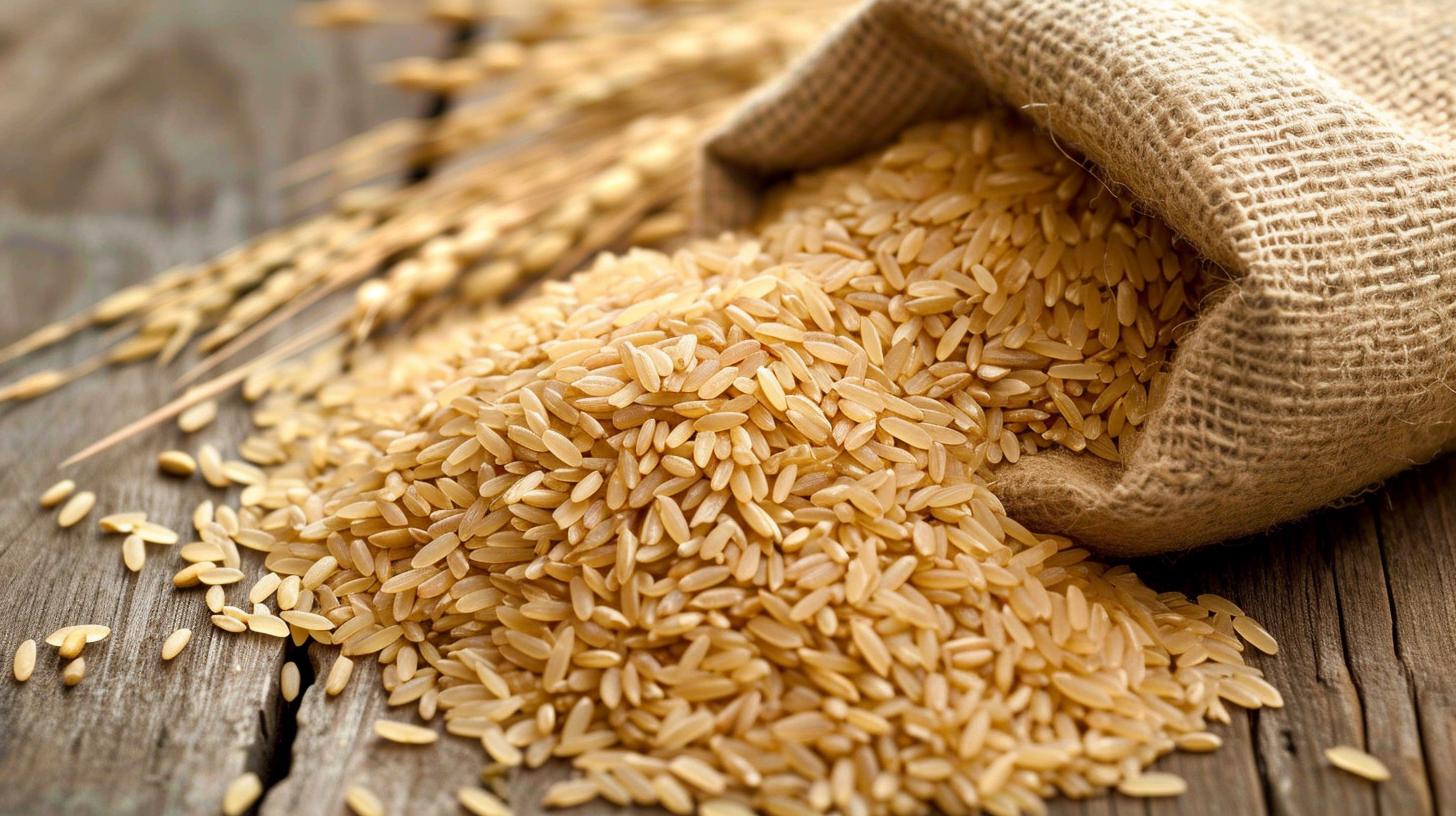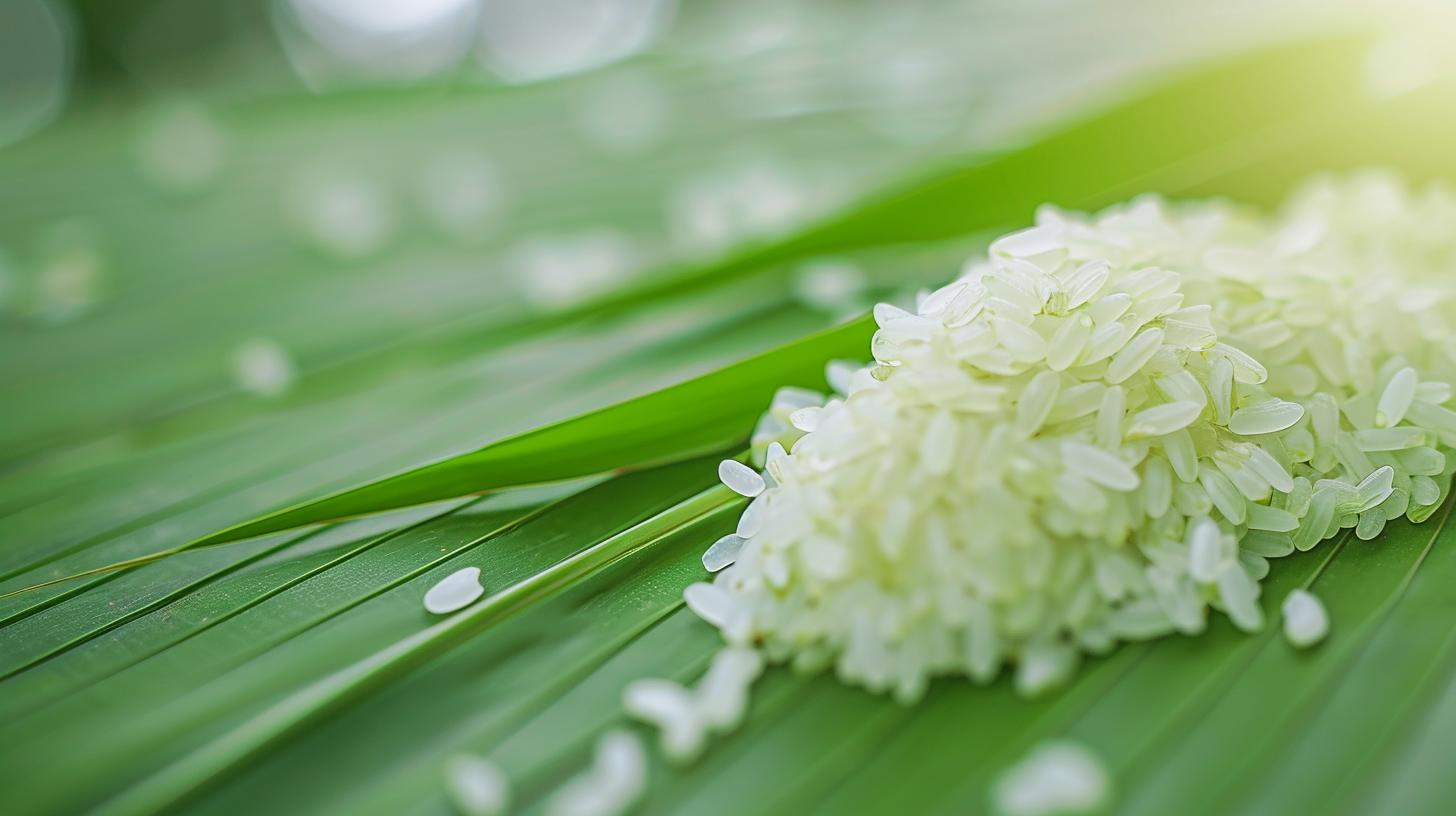
Thooymalli rice, a traditional variety of rice in South India, is known for its numerous health benefits. With its unique nutritional content and cultural significance, this rice has gained attention for its potential to contribute to a healthy and balanced diet. In this article, we will explore the historical background, nutritional value, health benefits, recommended cooking methods, and overall impact of Thooyamalli rice on health.
Thooyamalli rice has been a staple in South Indian cuisine for centuries and holds a significant place in the region’s cultural heritage. Its historical background and cultural significance have contributed to its popularity and consumption among local communities. Understanding the origins and traditional uses of Thooyamalli rice can provide insights into its value as both a food source and an integral part of culinary traditions.
In addition to its cultural significance, Thooyamalli rice offers a rich nutritional profile that sets it apart from other varieties of rice. This unique combination of nutrients makes it a valuable addition to a healthy diet. From vitamins and minerals to dietary fiber, Thooyamalli rice provides essential components that support overall well-being. Understanding the nutritional content and value of this variety can shed light on its potential impact on health.
Historical Background and Cultural Significance
Thooyamalli rice, also known as Thuyamalli or Thuyamallika rice, is a traditional variety of rice that has been cultivated in the Southern parts of India for centuries. The historical background and cultural significance of this unique rice variety are deeply rooted in the traditions and practices of the region.
Historical Background
The cultivation of Thooyamalli rice dates back to ancient times, with historical records indicating its presence in the regions of Tamil Nadu and Kerala. This rice variety has been an integral part of the local agriculture and cuisine, playing a significant role in the food culture of the communities in these areas.
Cultural Significance
In addition to its historical importance, Thooyamalli rice holds cultural significance among the people of Southern India. It is often used in religious rituals, festivals, and traditional ceremonies, symbolizing prosperity, auspiciousness, and purity. The intrinsic connection between Thooyamalli rice and the local culture is reflected in the traditional dishes prepared using this unique variety.
The preservation and continued cultivation of Thooyamalli rice have been actively promoted by organizations and agricultural groups to ensure its cultural significance is maintained while also recognizing its nutritional value and health benefits. Though largely consumed locally in Southern India for many years, it has gained attention globally for its unique properties.
Nutritional Content and Value
Thooyamalli rice is a nutrient-dense variety of rice that has gained attention for its numerous health benefits. This unique rice variant is known for its rich nutritional content, making it a valuable addition to a healthy diet. Thooyamalli rice is packed with essential nutrients such as protein, fiber, vitamins, and minerals, making it an excellent choice for those looking to enhance their overall well-being through dietary choices.
One of the key nutritional components of thooyamalli rice is its high fiber content. Fiber plays a crucial role in supporting digestive health and regular bowel movements. Additionally, thooyamalli rice contains significant levels of protein, which is essential for muscle repair and growth. Moreover, this variety of rice also provides important vitamins and minerals such as iron, magnesium, and B vitamins, contributing to overall health and vitality.
Incorporating thooyamalli rice into your diet can also provide various health benefits due to its nutritional value. From supporting heart health to aiding in weight management, the consumption of thooyamalli rice can have a positive impact on overall wellness. Additionally, the high levels of antioxidants found in thooyamalli rice contribute to its ability to combat oxidative stress within the body, promoting cellular health and longevity.
| Nutrient | Amount Per 1 Cup (185g) |
|---|---|
| Protein | 4g |
| Fiber | 3g |
| Vitamin B6 | 5% of the Daily Value (DV) |
Health Benefits of Thooyamalli Rice
Thooyamalli rice, a traditional variety of rice native to India, is gaining popularity for its numerous health benefits. This unique and nutritious rice variety has been used for centuries and is known for its distinct taste, aroma, and texture.
One of the key health benefits of thooyamalli rice is its high nutritional content. It is a good source of essential nutrients such as carbohydrates, protein, fiber, vitamins, and minerals. Thooyamalli rice is also gluten-free, making it an excellent choice for individuals with gluten intolerance or celiac disease. Additionally, this rice variety has a low glycemic index, which means it can help regulate blood sugar levels when consumed as part of a balanced diet.
Furthermore, thooyamalli rice contains antioxidants that help protect the body from oxidative stress and reduce the risk of chronic diseases such as heart disease, diabetes, and certain types of cancer. The presence of these antioxidants in thooyamalli rice makes it a valuable addition to a healthy and well-rounded diet.
Incorporating thooyamalli rice into your meals can be beneficial for overall health and well-being. Its high nutritional value and potential health benefits make it a worthy choice for those looking to improve their diet and lifestyle. Whether used in traditional South Indian dishes or modern recipes, thooyamalli rice offers a delicious way to support good health.
| Health Benefits | Details |
|---|---|
| Nutritional Content | Carbohydrates, protein, fiber, vitamins, minerals |
| Gluten-Free | Suitable for individuals with gluten intolerance or celiac disease |
| Antioxidants | Help protect against oxidative stress and reduce the risk of chronic diseases |
Comparison With Other Rice Varieties
Thooyamalli rice, also known as Kavuni rice, is a unique and nutrient-dense variety of rice that offers numerous health benefits. In this section, we will compare thooyamalli rice with other popular rice varieties to highlight its nutritional superiority.

When compared to regular white rice, thooyamalli rice stands out due to its significantly higher nutritional content. While white rice is stripped of most of its nutrients during the refining process, thooyamalli rice retains its natural goodness, making it a more nutritious choice. Additionally, thooyamalli rice has a lower glycemic index compared to white rice, which means it does not cause a rapid spike in blood sugar levels when consumed.
In contrast to brown rice, which is known for its high fiber content, thooyamalli rice boasts even greater nutritional value. Thooyamalli rice contains essential minerals such as iron and zinc in higher amounts than brown rice. It also provides more antioxidants, offering superior protection against free radical damage and oxidative stress.
Furthermore, when compared to other heirloom and ancient grains such as quinoa and amaranth, thooyamalli rice holds its own in terms of nutrient density and health benefits. While these alternative grains are celebrated for their health properties, thooyamalli rice offers a unique profile with distinct advantages in terms of micronutrient content.
In summary, though there are many varieties of healthy grains available on the market today, none quite compare to the exceptional nutritional profile offered by thooyamalli rice. Its high mineral content and antioxidant properties set it apart from other traditional and alternative grains alike. Incorporating thooyamalli rice into your diet can be an excellent way to elevate your overall nutritional intake and support your well-being.
Recommended Cooking Methods and Recipes
Thooyamalli rice, also known as jeeraga samba, is a unique and nutritious variety of rice that offers a wide range of health benefits. In this section, we will explore the recommended cooking methods for thooyamalli rice, as well as some delicious recipes to incorporate this healthy grain into your diet.
Cooking Methods
Thooymalli rice can be cooked using various methods, including boiling, steaming, or using a rice cooker. To retain its nutritional value and unique flavor, it is recommended to soak the rice for at least 30 minutes before cooking. This helps to soften the grains and reduce the cooking time. When boiling thooyamalli rice, it is important to use the right ratio of water to rice to achieve the perfect texture.
Delicious Recipes
One popular way to enjoy thooyamalli rice is by preparing it as a flavorful biryani. This aromatic dish combines the nutty flavor of thooyamalli rice with an assortment of spices, herbs, and vegetables or meats. Another delicious recipe is thooyamalli rice pudding, which can be made by simmering the rice with milk, sugar, and cardamom until it reaches a creamy consistency.

Healthy Meal Ideas
In addition to traditional Indian dishes, thooyamalli rice can be used in various healthy meal options such as salads, stir-fries, and pilafs. Its nutty flavor and slightly chewy texture make it a versatile ingredient that pairs well with different flavors and ingredients. By incorporating thooyamalli rice into your meals, you can enjoy its health benefits while exploring new culinary experiences.
Overall, thooyamalli rice provides an excellent alternative to other varieties of rice due to its nutritional content and unique taste. By following recommended cooking methods and trying out diverse recipes, you can fully experience the goodness of thooyamalli rice in your daily meals.
Incorporating Thooyamalli Rice Into a Healthy Diet
Thooyamalli rice, also known as bamboo rice, is a unique and nutritious variety of rice that has been gaining attention for its numerous health benefits. This rare and exotic rice variety is not only delicious but also offers a range of nutrients that can contribute to a healthy diet. Incorporating thooyamalli rice into your meals can provide you with essential vitamins, minerals, and fiber that are beneficial for overall well-being.
When adding thooyamalli rice to your diet, it’s important to consider the different cooking methods and recipes that can enhance its nutritional value. Here are some ways you can incorporate this healthy rice variety into your meals:
- Use thooyamalli rice in place of white or brown rice in your favorite pilaf or stir-fry recipe for a nutty and slightly sweet flavor.
- Cook thooyamalli rice with flavorful ingredients such as coconut milk, herbs, and spices to create a tasty and aromatic dish that pairs well with various proteins and vegetables.
- Combine thooyamalli rice with lentils or beans to increase the protein content of your meal and create a satisfying vegetarian entree.
In addition to these cooking methods, incorporating thooyamalli rice into a healthy diet involves being mindful of portion sizes and balancing it with other nutrient-dense foods. By including this unique variety of rice in your meals, you can reap the thooyamalli rice health benefits while enjoying delicious and diverse culinary experiences.
Potential Side Effects and Precautions
While thooyamalli rice offers a plethora of health benefits, it’s important to be aware of potential side effects and precautions when incorporating this rice into your diet. One potential side effect is related to its high fiber content, which can cause bloating, gas, or digestive discomfort in some individuals, especially if they are not used to consuming a lot of fiber. It is recommended to start with small portions and gradually increase intake to allow the body to adjust.
Additionally, thooyamalli rice contains a moderate amount of arsenic, which is a natural element found in the environment. Arsenic levels can vary depending on where the rice is grown and how it is processed. To minimize exposure to arsenic, it is advised to rinse thooyamalli rice thoroughly before cooking and to cook it in excess water that can be drained off once the rice is cooked.
For individuals who are sensitive to gluten or have celiac disease, thooyamalli rice is a safe alternative as it does not contain gluten. However, for those with rice allergies or sensitivities, it’s crucial to consult with a healthcare professional before adding thooyamalli rice to their diet. It’s always important to listen to your body and make adjustments based on individual health needs.
Conclusion
In conclusion, the health benefits of Thooyamalli rice cannot be overstated. With its rich nutritional content, including high levels of antioxidants, fiber, and essential nutrients, Thooyamalli rice is a valuable addition to any healthy diet. Its potential to aid in weight management, reduce the risk of chronic diseases, and support overall well-being makes it a standout among other rice varieties.
The historical and cultural significance of Thooyamalli rice adds to its appeal and importance. For generations, this traditional rice has been cherished for its unique flavor and texture, as well as its role in various cultural rituals and culinary traditions. Its resilience and adaptability also make it an environmentally sustainable choice for agricultural practices.
As more people become aware of the many health benefits of Thooyamalli rice, it is important to consider incorporating this nutritious grain into daily meals. Whether through traditional recipes or modern fusion dishes, there are countless creative ways to enjoy the unique qualities of Thooyamalli rice while reaping its health advantages.
In the quest for a balanced and nutritious diet, exploring diverse grains like Thooyamalli rice can provide not only health benefits but also an opportunity to learn about different culinary traditions and promote sustainable agriculture. It is clear that the incorporation of this ancient grain into our diets can have a significant impact on our overall health and well-being.






